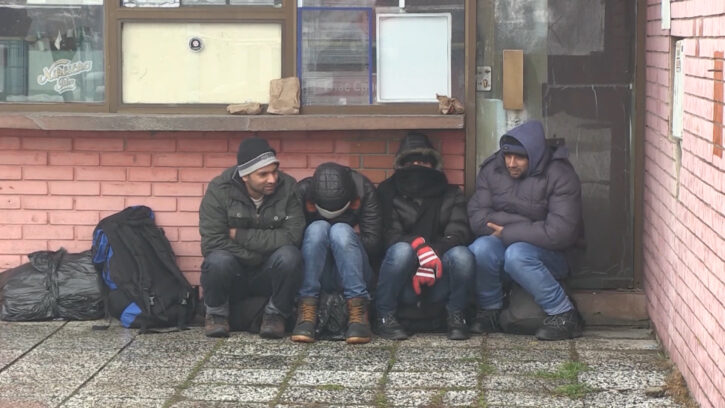
Authorities of a municipality near the capital of Sarajevo announced on Friday they would form a “crisis headquarters” to deal with the migrant issue in their area if the state authorities fail to act on this matter.
The warning came after the announcement that 250 “problematic” migrants from the norhtwest of Bosnia would be transferred to the Usivak barracks in Hadzici Municipality, which now serves as a temporary shelter for migrants.
Head of the Municipality Hamdo Ejubovic told the reporters on Frida that, like the migrants, the residents of his municipality are also entitled to their human rights and the right to security.
“If the competent institutions fail to change the situation on the ground, we will organise and protect ourselves on our own. We will form a crisis headquarters and manage the crisis. The crisis will not manage our lives,” said Ejubovic. “I stress that we want to be part of a solution and not of creating a problem.”
International organisations helped Bosnian authorities to prepare mostly abandoned or rarely used facilities at seven locations across the country to accommodate migrants who got stuck in Bosnia on their way to the western Europe.
In an attempt to get closer to their final destinations, most of the migrants took to Bosnia's northwest, the Una-Sana region bordering Croatia. But, Croatia did not let them in, as the larger part of the migrants are illegal and posses no valid documents proving their origin.
Over the past few months, several incidents involving the migrants were reported with the local police in the northwestern Una-Sana Canton. Following the latest mass brawl in one of the shelters, the Una-Sana authorities decided to send the migrants taking part in the incidents to the state-run Usivak centre.

“The municipalities of Bihac, Velika Kladusa (both in the northwest) and Hadzic suffer the consequences of the migrant crisis. We urge Bosnia and Herzegovina (authorities) to share this problem equally. Facilities to accommodate migrants can be placed any minute at any part of the territory from east to west, and not only in centres in Bihac, (Velika) Kladusa and Hadzici,” said Ejubovic.
Bosnia's authorities have been struggling with the migrant issue for the whole past year, after dozens of thousands of foreign nationals, coming from various Asian and African countries took to Bosnia, a route to their final destinations in European Union.
Due to weather conditions, the influx of migrants to Bosnia significantly decreased over the winter season and a little more than 1,000 were registered after entering the country since the beginning of the year. Some 4,000 migrants are currently accommodated in Bosnia, in seven shelters – of which most are located in the northwestern Una-Sana region, the region bordering Croatia.




